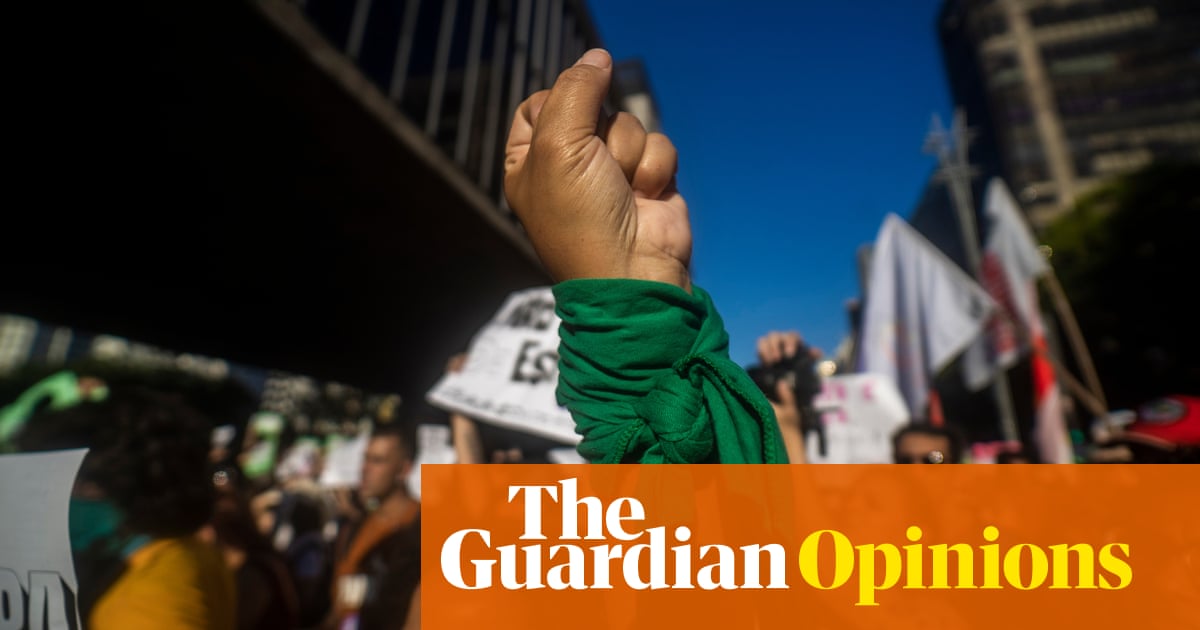When Jair Bolsonaro rose to power and movedto dismantle Brazil’sdemocracy, he faced a formidable foe. A powerful wave of Black womenwereat the forefront of the resistance that led to his defeat.
Beyond defeating an authoritarian, Black women helped elect atranche of new officials, includingrecord numbers of women and trans leaders. As the vanguard of a young, diverse, representative government, they epitomise Brazil’s best future as a thriving democracy. A future that Bolsonaro came close to foreclosing.
It came at an immense cost, including theassassination of leaders like Marielle Franco, a black LGBTQ+ city councilwoman who grew up in a Rio favela and championed Afro-Brazilian communities. Marielle was shot dead in her car in 2018.
Today, a similar high-stakes struggle is unfolding globally with fascism and authoritarianism gaining ground. In the US, Trump isaccelerating and emboldeningattacks on everything from freedom of expression to reproductive justice, with alarmingtools of repression.
The powerful few have unleashed fear tactics designed to sow confusion among those who have had the privilege, so far, of looking away from the rising toll of climate disasters, conflicts, police violence and other injustices that cost lives.
But movements led by the most oppressed have been warning of the untenable inequality and injustice for decades; they also have been building authoritarianism’s most powerful alternative: thriving and just societies.
In Senegal, for example,Mariama Sonkohas galvanised more than 100,000 rural female farmers to demand their rights and share solutions to climate justice that might save our planet.
Such movements do not operate in a vacuum. Sudan offers a powerful lesson: as social groups mount anti-authoritarian resistance, the outcome is not determined only by those who fight, but also by those watching. In 2019, women, queer people and students were at the centre of nationwide resistance that brought downOmar al-Bashir’s regime.
Black feminists the world over celebrated but their governments failed Sudan’s blossoming democratic experiment. Instead, they put their own interests – and endless hunger for natural resources – ahead of the hope of anew democratic future. The countrydescended into civil war.
Today, the same social campaigns are working to provide life-saving support to Sudanese people. If only Sudanese movements had been supported perhaps the world would have had a powerful new model of democracy.
Social movements need others to show up courageously to the fight for a fairer world – and to bring their resources to the table.
This includes philanthropy, a sector I joined to make an intervention. As an activist, I saw the troubling ways in which money was wielded to keep social movements in a cycle of precarity that dimmed their fervour and increased their dependency with every grant application.
Black feminist organisations receiveless than 1% of foundation funding.More than halfdon’t have money available for the next year’s work.
In 2021 we created theBlack Feminist Fund, the first global philanthropic fund of its kind. Here, I have witnessed the promise of what becomes possible when resources are distributed differently.
We provide grants that are impactful and guaranteed for eight years. Our movement partners tell us this flexibility and trust has transformed their ability to work.
However, the momentum built is under renewed threat. In Europe, the rise of far-right governments and the diversion of state funding to militarisation means resourcesare drying up.
The Trump administration is working overtime to intimidate funders from supporting racial and gender justice. It cynically deploys the language of discrimination and its direct targets include Black women and trans people.
Theeffectis real. Some funders – including those with an explicit mission to advance social justice – are choosing silence and, troublingly, strengthening their compliance in anticipation of unjust laws. Others are fully backtracking,ending supportfor advancing racial and gender justice.
A generous read is that these boardrooms of philanthropy are responding in fear. A more cynical read suggests that the backtracking is so swift because they were not in principled alignment in the first place. Were they supporting Black feminist leadership because it was trendy – because they risked losing clients, money, reputation if they didn’t – or because they believed in it?
This moment calls everyone to do what we can with what we have.
At the Black Feminist Fund, it means funding with urgency and with trust. We choose to speak out – and act – in the limited ways that we can. We bring money to the table, with an invitation for others to join us in flanking Black feminist movements when they need support the most.
We are launching a new round of funding, $16m (£12.5m), to support Black feminist activism across the world.
Whatever your tools, this is the time to use them. Let’s take courage from those who are fighting fascism head on, who are afraid, but choose to do it anyway.
Hakima Abbas is the co-founder and co-executive director of theBlack Feminist Fund
